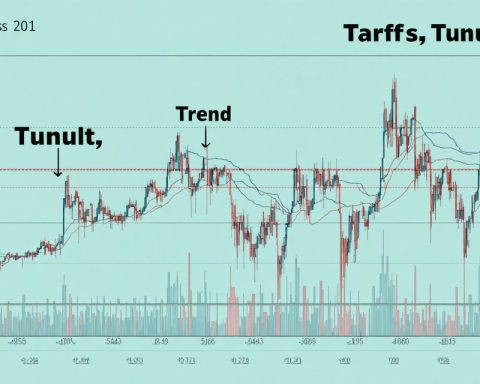International Business Machines Corporation (IBM), a colossal force in the IT world, currently holds a market valuation of $217.1 billion. Headquartered in Armonk, New York, IBM leverages hybrid cloud and advanced AI technologies through its robust platform-centered strategy to help clients seamlessly transition to digital solutions. By integrating cutting-edge innovations like hybrid cloud platforms and AI technology, IBM provides comprehensive lifecycle services.
Although IBM classifies as a “mega-cap” stock, owning Red Hat and forging strategic alliances with industry leaders such as AWS, Microsoft, and SAP, its stock has experienced a slight dip. IBM’s shares fell 1.1% from their year-high peak of $237.37 achieved on October 15. Remarkably, in the last quarter, the company showed resilience, with shares climbing 15.9% compared to the Technology Select Sector SPDR Fund’s growth of 14.6%.
Year-to-date, IBM exhibited substantial growth, rising 43.5%, which surpasses XLK’s gains of 24.6%. Over the past year, IBM’s shares increased by 45.5%, outpacing XLK’s 30.1% rise. Yet, despite surpassing earnings estimates with a $2.30 adjusted EPS, a 6.2% drop occurred post-announcement of weaker-than-anticipated Q3 revenue, influenced by a shift towards generative AI projects.
While IBM’s software division expanded by 9.7%, certain infrastructural and consulting challenges overshadowed this growth. Currently, analysts are apprehensive, citing potential constraints on IT budgets and reduced consulting demand into 2025. Meanwhile, Accenture, a competitor, trails behind IBM’s financial performance, showing only modest growth.
Though IBM surpasses industry expectations, analysts suggest a cautious “Hold” recommendation, with shares trading over the average target price of $221.41.
IBM’s Strategic Opportunities and Emerging Challenges in the Digital Era
As IBM navigates its transformative journey in the IT industry, the company’s robust commitment to hybrid cloud and AI technologies positions it uniquely within the rapidly evolving digital landscape. Despite facing challenges like a slight dip in stock performance and infrastructure hurdles, IBM remains a formidable force with a strategic focus on innovation.
Strategic Innovations and Alliances
IBM’s alliances with tech giants AWS, Microsoft, and SAP are a testament to its strategic intent to leverage synergies and drive digital transformation for its clients. This collaboration underscores IBM’s dedication to enhancing cloud proficiency and integrating AI across diverse industry sectors. Furthermore, IBM’s acquisition of Red Hat has fortified its hybrid cloud capability, reinforcing its competitive edge in providing comprehensive digitization solutions.
Market Dynamics and Financial Performance
Although IBM’s shares recently experienced a minor decline from their year-high, the company showcased resilience, with a commendable 15.9% climb in the last quarter. This performance underscores IBM’s adaptability, even amidst broader market fluctuations, as indicated by the Technology Select Sector SPDR Fund’s growth comparison. Over the past year, IBM’s growth of 45.5% overtakes the XLK benchmark, highlighting its strength against sector peers.
Despite surpassing earning expectations with a $2.30 adjusted EPS, IBM encountered a 6.2% fall following a weaker-than-anticipated Q3 revenue announcement. The shift towards generative AI projects presents opportunities, while also introducing revenue unpredictability, prompting a careful assessment from analysts regarding future growth trajectories.
Challenges and Analyst Predictions
IBM’s expansion in its software division by 9.7% provides optimism, yet infrastructural challenges and consulting service demands pose potential setbacks. Market analysts express cautiousness due to anticipated IT budget constraints and a potential dip in consulting requirements moving into 2025. Hence, despite IBM’s historical ability to outperform industry expectations, current stock trading above the average target price of $221.41 warrants a “Hold” recommendation from analysts.
Emerging Trends and Future Directions
The inclination towards generative AI projects signals IBM’s proactive engagement with cutting-edge tech trends, setting a foundation for future digital solutions. As enterprises globally shift towards advanced AI utilisations, IBM’s early investments are poised to yield long-term strategic advantages. However, navigating IT budget developments and consulting demand fluctuations will be crucial in determining IBM’s sustained market leadership and adaptability.
IBM’s official website offers further insights into their hybrid cloud and AI initiatives, reflecting their steadfast dedication to fostering innovation in a dynamic tech ecosystem.


















